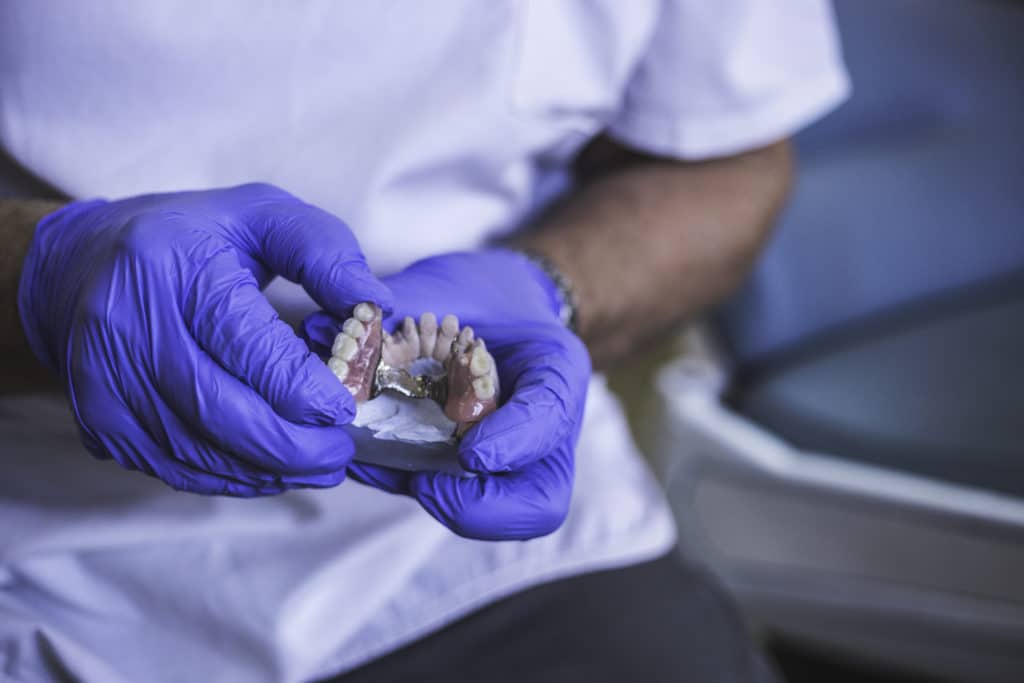WHAT ARE PARTIAL DENTURES?

Your dentist may offer a partial denture as a treatment option if you need to replace teeth in any area of your mouth. Partial dentures can be fitted to accommodate the back or front of either the upper or lower arch. Treatment is convenient and effective at restoring your smile and your ability to speak and chew comfortably.
A partial denture is a fixture that looks like natural teeth and gums. Artificial teeth are affixed to a plastic base that is shaded to match your natural gum color. The fixture may have a metal framework or acrylic framework.
This type of denture is a common option when one or more natural teeth remain in the area for support. In contrast to full dentures, partial dentures can be placed around teeth that are still in place instead of replacing the entire set of teeth.






